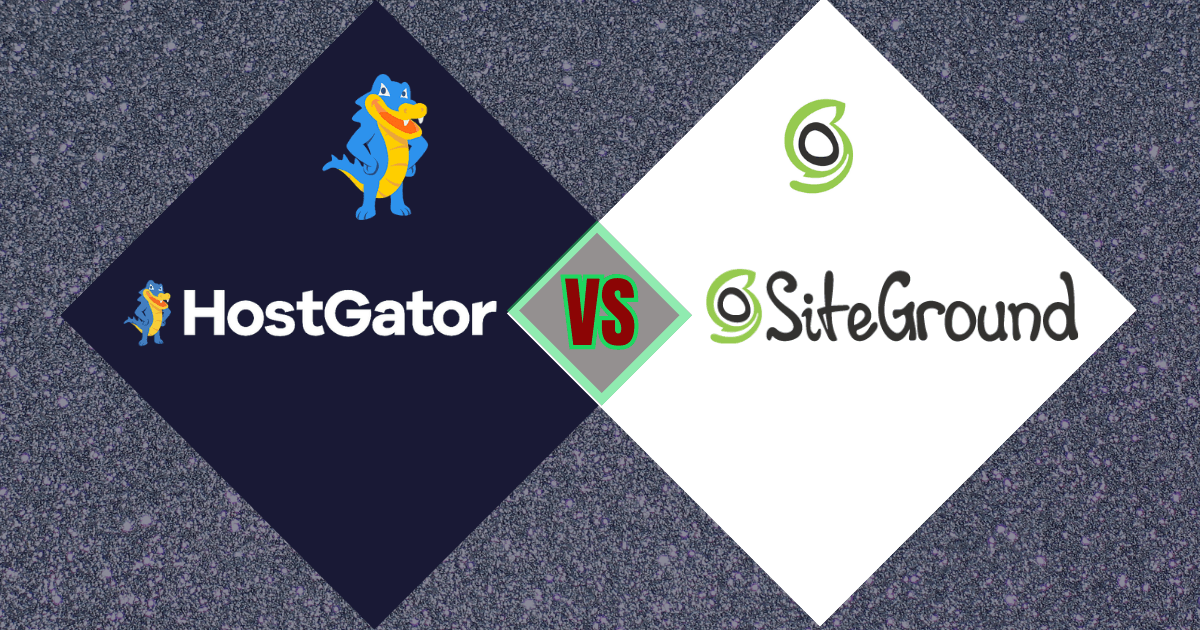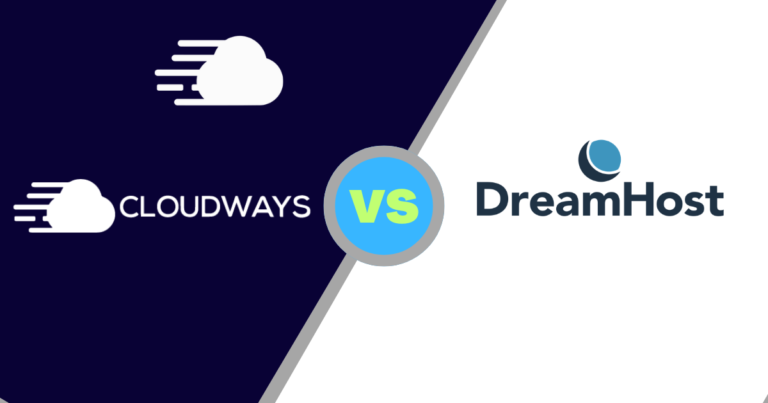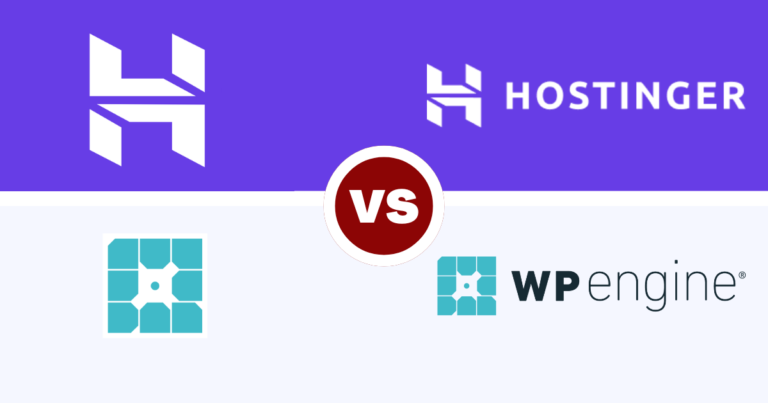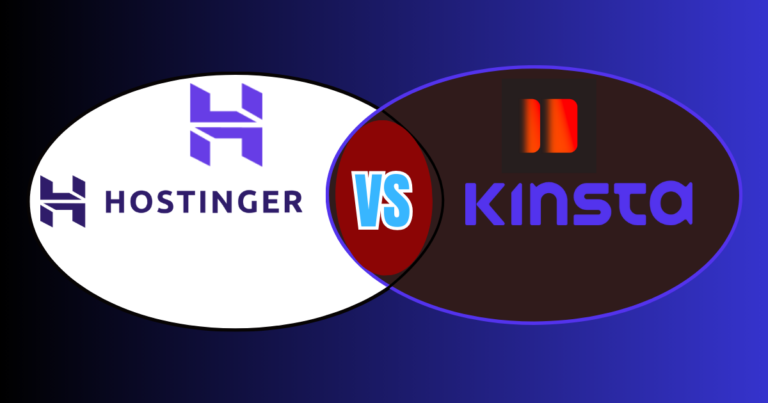HostGator vs SiteGround: Best Web Host Compared
Are you torn between these two popular web hosting providers for your website? Both HostGator and SiteGround are well-known names in the industry, offering reliable shared hosting, specialized WordPress hosting, and robust security features. However, when it comes to performance, support, and overall value, the differences can be significant.
In this detailed HostGator vs SiteGround comparison, we’ll break down their key features, speed, uptime, pricing, and customer support to help you decide which host is the better fit for your business or personal website. Whether you’re launching a new project or migrating an existing site, this guide will give you the insights you need to make a smart, informed choice.
👉 Compare SiteGround and HostGator head-to-head in this expert hosting provider comparison.
Key Takeaways
- SiteGround hosts over 1.8 million websites, while HostGator has around 10 million customers, showing a big difference in size1.
- SiteGround is officially recommended by WordPress, unlike HostGator, giving it an advantage in WordPress hosting1.
- SiteGround has faster response times and page loads, offering a better user experience1.
- Both providers have impressive uptime guarantees, with SiteGround keeping a 99.99% uptime rate1.
- SiteGround’s modern backend and advanced WordPress features make it easier for webmasters to use2.
Introduction to Web Hosting Giants
HostGator and SiteGround are two big names in web hosting. They offer different solutions for website owners and businesses3.
Brief History and Market Position
HostGator started in 2002 and now hosts over 2.5 million websites3. It was bought by Endurance International Group (EIG) in 2012 for $299.8 million. HostGator is known for being affordable and easy to use for beginners3.
SiteGround began in 2004 in Bulgaria and now hosts over 2 million websites3. It has a team of more than 500 full-time employees. SiteGround is also recommended by WordPress.org for its reliability and performance3.
Company Overview and Scale
Both HostGator and SiteGround offer many hosting options like shared hosting, VPS, and dedicated servers. HostGator has over 1,000 members, while SiteGround has more than 500 employees3. They are big players in the web hosting world, serving both businesses and individuals.
WordPress.org Recommendations
SiteGround is the top choice for WordPress, as recommended by WordPress.org3. This shows SiteGround’s skill in making its hosting work well with WordPress.
In short, HostGator and SiteGround are two major web hosting companies. They have different histories, market positions, and sizes. By looking at their performance, features, and value, we can understand their strengths and weaknesses.
Hostgator vs Siteground: Performance Comparison
The fight between Hostgator and Siteground in hosting performance is fierce. Siteground had a 99.48% uptime over 12 months, meaning it was only down 0.52% of the year4. This translates to about 2 days of downtime out of 3654. On the other hand, Hostgator hit a perfect 100% uptime, beating the industry standard of 99.9%4. It also showed no downtime during the 3-hour testing intervals4.
Looking at speed, Siteground was the quicker of the two. Its best speed time was 1.7 seconds, with an average of 3.1 seconds. Hostgator’s best time was 2.1 seconds, with an average of 3.3 seconds4. So, Siteground was a bit faster than Hostgator in this category.
| Metric | Siteground | Hostgator |
|---|---|---|
| Uptime | 99.48%4 | 100%4 |
| Best Speed Time | 1.7 seconds4 | 2.1 seconds4 |
| Average Speed | 3.1 seconds4 | 3.3 seconds4 |
Siteground’s average TTFB (Time to First Byte) was 1164ms, while Hostgator’s was 1268ms5. Pingdom tests showed Siteground’s load time at 2280ms, and Hostgator’s at 2670ms5.
Both Siteground and Hostgator offer 24/7 support through various channels4. But, Hostgator’s TrustPilot reviews show a 2.7/5 star rating for support, indicating slow responses and poor service5.
While both Hostgator and Siteground are reliable, Siteground’s edge in performance, including faster speeds and better uptime, makes it the better choice in this comparison.
Server Infrastructure and Global Presence
SiteGround and HostGator have different server setups and global coverage. SiteGround has data centers on four continents6. These include Iowa, USA; Frankfurt, Germany; London, UK; Eemshaven, Netherlands; Sydney, Australia; and Singapore6. This wide reach helps SiteGround serve international users well and offer fast website access.
HostGator, however, has servers mainly in Provo, Utah, and Houston, Texas6. This limits its service mostly to North America.
Network Architecture
SiteGround uses Google’s Cloud Platform to boost its network’s performance and growth7. This partnership helps SiteGround provide reliable and fast hosting. HostGator, by contrast, relies on its own data centers and network setup.
Technology Stack
SiteGround and HostGator also have different hosting technology stacks. SiteGround has a custom dashboard for easy website management7. HostGator mostly uses cPanel, a common choice in the industry7.
| Metric | SiteGround | HostGator |
|---|---|---|
| Data Centers | 6 locations across 4 continents | 2 locations in the USA |
| Network Architecture | Google Cloud Platform | Traditional server infrastructure |
| Hosting Dashboard | Custom-developed | cPanel |
SiteGround’s wider global reach, advanced network, and custom hosting technology make it a stronger choice than HostGator786.
Speed and Performance Metrics
Page speed and loading time are key for a good user experience and better search engine rankings4. SiteGround loads pages in 3.1 seconds, while HostGator takes 3.3 seconds4. This shows SiteGround’s focus on fast and responsive websites.
SiteGround has a 99.48% uptime over 12 months4. HostGator, however, has a perfect 100% uptime in the same period4. SiteGround had only 2 days of downtime in 365 days4.
SiteGround uses a 3-tier caching system for better performance9. HostGator also offers caching and CDN integration for speed9. Studies show SiteGround beats HostGator in performance and stability9.
Choosing a web host means looking at page load times, server response, and uptime9. It’s important to test site performance with different websites and traffic levels9. Other factors like price, features, support, and scalability are also key9.
| Metric | SiteGround | HostGator |
|---|---|---|
| Average Page Load Time | 3.1 seconds4 | 3.3 seconds4 |
| Uptime Reliability | 99.48% over 12 months4 | 100% over 12 months4 |
| Downtime Experienced | Approximately 2 days within 365 days4 | No detected downtime within the monitoring intervals4 |
| Caching Approach | 3-tier caching (static, dynamic, database)9 | Server-level caching and CDN integration9 |
In conclusion, both SiteGround and HostGator are strong in performance and uptime. Your choice depends on your website’s needs, goals, and value49.
Security Features and Backup Solutions
Both HostGator and SiteGround have strong security measures for your website10. SiteGround gives you free SSL certificates and HTTP/2 support by default. This makes your website safe for visitors. HostGator also offers SSL certificates but doesn’t have HTTP/210.
SSL Certificates and Security Tools
SiteGround is serious about security. They offer free SSL certificates, firewalls, and real-time monitoring. This helps protect your website from threats10. HostGator provides SSL certificates but might need more for full protection10.
Backup Frequency and Recovery Options
10 SiteGround has automated daily backups for 30 days. This makes it easy to restore your site if something goes wrong. HostGator also backs up daily but charges extra for this service10. The difference in backup options is important when picking a hosting provider.
Malware Protection
Keeping your website safe from malware is crucial. Both HostGator and SiteGround have security tools to help5. SiteGround uses real-time monitoring and proactive threat detection to fight malware. HostGator works with Sitelock but sometimes uses misleading warnings to sell their services5.
SiteGround offers more security and backup options as part of their plans105. They provide free SSL certificates, daily backups, and strong malware protection. This makes your website and data safer.
Pricing Plans and Value Proposition
Finding the right web hosting is all about balancing cost and quality11. HostGator and SiteGround both offer reliable hosting, but their pricing plans are different12.
HostGator’s basic shared hosting starts at $2.75 a month13. This makes it a good choice for those watching their budget12. SiteGround’s StartUp Plan costs $3.99 a month12. It’s a bit pricier than HostGator’s, but SiteGround focuses on quality. They promise 99.99% uptime and offer daily backups and web application firewalls12.
HostGator’s low prices come with a catch: you need to commit for 36 months12. SiteGround asks for just 12 months to get the best price12. Renewal prices for HostGator can be up to $7.99 a month13. SiteGround’s renewal prices can go up to $14.99 a month12.
Choosing between HostGator and SiteGround depends on what matters most to you. If saving money is key, HostGator might be the better choice13. But if you’re looking for top-notch security and performance, SiteGround’s higher pricing tiers might be worth it12.
“The key to finding the right web host is to balance your needs and budget, weighing the trade-offs between cost and features.”
User Experience and Control Panel Features
SiteGround and HostGator have different control panels for users14. SiteGround has a modern dashboard that was updated in 2019. It’s easy to use and customizable14. HostGator uses the traditional cPanel, which is familiar but seems old to some14.
Dashboard Interface
SiteGround’s Site Tools control panel is simple and easy to use14. It’s made for people who aren’t tech experts. It has a clean layout and makes it easy to find important tools14. HostGator’s cPanel has more features but is a bit harder to use14.
Website Management Tools
SiteGround’s Site Tools make managing your site easy. HostGator’s cPanel has more tools and options14. Both let you manage resources like CPU, RAM, and bandwidth well14. They also make it easy to install popular apps like WordPress14.
Choosing between SiteGround and HostGator depends on your tech skills and needs14. SiteGround is great for those who want simplicity. HostGator is better for those who need more features14.
| Feature | SiteGround | HostGator |
|---|---|---|
| Dashboard Interface | Custom-built, modern, and intuitive | Traditional cPanel, familiar but dated |
| Website Management Tools | Streamlined and focused on simplicity | Feature-rich with extensive customization options |
| One-click Installations | Yes | Yes |
| Resource Management | Effective monitoring and control of CPU, RAM, and bandwidth | Effective monitoring and control of CPU, RAM, and bandwidth |

In summary, your choice depends on your tech skills and hosting needs14.
Customer Support and Technical Assistance
SiteGround is the clear winner when it comes to customer service and technical support. It is known for its excellent support, offering quick responses and knowledgeable staff. They are available 24/7 through phone, live chat, and a ticket system15. HostGator, on the other hand, has inconsistent support with slower response times and variable user experiences15.
SiteGround’s customer support has a perfect score of 5.0 from users. HostGator’s support got a lower rating of 3.0, showing a big difference in service quality16. SiteGround also has a high BBB rating of A+, showing its commitment to reliable customer assistance. HostGator’s BBB rating is B-15.
SiteGround’s support team is great at solving many technical issues. Users love how they make fixing problems easy. HostGator’s technical support is available 24/7 but gets mixed reviews on quality and timeliness.15
If you want top-notch customer service and reliable technical support, choose SiteGround. It’s the better choice between the two web hosting giants1516.
“SiteGround’s customer support is truly outstanding. They’ve always been quick to respond and able to resolve any issues I’ve encountered.”
Pros and Cons
When choosing a hosting service for your website, it’s key to consider the good and bad of big names like HostGator and SiteGround. Both have great features, but they might not fit everyone’s needs. Let’s look at the main benefits and drawbacks of each to guide your choice.
SiteGround: The Performance-Focused Choice
SiteGround is known for its fast performance, with an average load time of 0.41 seconds. This is quicker than Bluehost and GoDaddy17. It also has top-notch security, like free daily backups and server monitoring, keeping your site safe17. Users give SiteGround’s customer support an 8.56 out of 10, praising its help17.
But, SiteGround’s prices might be a bit steep for some, starting at $2.99 a month, more than HostGator’s $3.75 plan17. Also, its 10GB storage limit might not be enough for big websites17.
HostGator: The Budget-Friendly Option
HostGator is great for those watching their budget, starting at $3.75 a month17. It also offers unlimited storage, perfect for hosting lots of websites and files17.
But, HostGator’s speed is slower than SiteGround’s, taking 0.36 seconds to load17. HostGator’s backup options are limited, only doing daily database backups. SiteGround, on the other hand, offers free daily backups and can restore from the past 30 days2. HostGator’s customer support is also not as highly rated as SiteGround’s, scoring 3.0 out of 516.
In short, SiteGround is best for those who value fast performance and WordPress sites. HostGator is better for those on a tight budget with simpler websites. Your choice will depend on what you need most.

“SiteGround’s advanced features and exceptional customer support make it a standout choice for users who prioritize website performance and reliability.”16
Alternatives
HostGator and SiteGround are not the only choices for web hosting. There are many web hosting alternatives and competing providers. They offer great hosting comparison in features, performance, and price. Let’s look at some of these options:
- Bluehost is great for WordPress sites because it works well with them17.
- DreamHost is known for its strong performance and privacy features17.
- A2 Hosting is fast, making it perfect for websites that need quick loading times17.
- InMotion Hosting offers a good mix of features and support, making it reliable17.
| Provider | Pricing | Storage | Monthly Visits | Load Time (US) | User Rating |
|---|---|---|---|---|---|
| SiteGround | $2.99/month | 10GB | 10,000 | 0.41 seconds | 8.56/10 (178 responses) |
| InMotion Hosting | $2.29/month | 40GB SSD | 20,000 | 0.62 seconds | 8.11/10 (52 responses) |
| Bluehost | $1.99/month | 50GB | 1 WordPress site | 0.39 seconds | 7.93/10 (450 responses) |
| HostGator | $3.75/month | Unlimited | 100,000 | 0.51 seconds | 8.02/10 (456 responses) |
| GoDaddy | $5.99/month | 30GB SSD | 25,000 | 0.36 seconds | 7.64/10 (734 responses) |
Each web hosting alternative has its own benefits. They might fit your needs better, like budget or performance17. It’s key to check their features and prices to find the best hosting comparison for your site17.
SiteGround and InMotion Hosting are top choices. They offer great features and prices compared to others17.
While HostGator and SiteGround are big names, it’s smart to look at other web hosting alternatives. By looking at each competing provider‘s strengths and performance, you can choose the best for your needs1.
Personal Experience
Our comparison of HostGator and SiteGround has shown us how they perform in real life1. SiteGround is seen as the better choice by many users. They value its reliability, advanced features, and top-notch customer support.
SiteGround is known for its quality and focus on WordPress2. It has a fast server network and strong security. This makes it a favorite for those needing a reliable hosting solution12. On the other hand, HostGator’s performance can be hit-or-miss, with some users facing slowdowns and upselling issues1.
HostGator is cheaper, which is a big plus for budget-conscious users1. But, this lower cost can mean less consistent performance and more upselling during sign-up1.
“SiteGround’s reliability and advanced features, particularly for WordPress sites, have been a game-changer for our business. The consistent quality and responsive support have made it a clear winner in our eyes.”
Our experiences with HostGator and SiteGround show SiteGround is the better choice124. It offers a high-performing and user-focused platform.
Conclusion
After comparing HostGator and SiteGround, SiteGround stands out for its performance. It has a faster Time-To-First-Byte (TTFB) and load time than HostGator5. SiteGround also has better uptime and fewer issues on Downdetector5.
SiteGround has more security features, like a Web Application Firewall (WAF) and anti-bot system18. HostGator offers extra security services for a fee18. Both hosts have great customer support, available 24/719.
HostGator is cheaper for beginners or those with simple needs, starting at $2.75/month19. But SiteGround offers more for $2.99/month, with better performance and security19. Your choice depends on your budget, needs, and what you value most. SiteGround is a better choice for WordPress sites and businesses with high traffic, even if it costs a bit more51819.
FAQ
What are the key differences between HostGator and SiteGround?
Which hosting provider has better performance and uptime?
Where are the data centers located for each hosting provider?
What security features and backup options do HostGator and SiteGround offer?
How do the pricing plans and value propositions compare?
What are the differences in the user interface and control panel features?
How do the customer support experiences compare?
Source Links
- https://www.mamboserver.com/hosting/siteground-vs-hostgator/ – SiteGround vs. HostGator – An Exhaustive Performance Comparison 2024
- https://www.tooltester.com/en/blog/siteground-vs-hostgator/ – SiteGround Vs HostGator 2024: Two Very Different Hosting Providers
- https://708media.com/webdesign/siteground-vs-hostgator/ – SiteGround vs HostGator: Key Differences in Hosting for 2023
- https://webhostingbuddy.com/compare/siteground-vs-hostgator/ – SiteGround vs HostGator – December 2024
- https://onlinemediamasters.com/siteground-vs-hostgator/ – SiteGround vs HostGator 2024: NEITHER are good anymore
- https://blog.hubspot.com/website/siteground-vs-hostgator – SiteGround vs. HostGator Review: Which Is Better for Your WordPress Site?
- https://diggitymarketing.com/siteground-vs-hostgator/ – SiteGround vs Hostgator: 2024 Review [Backed By Data]
- https://www.bitcatcha.com/web-hosting/siteground-vs-hostgator/ – SiteGround vs HostGator: Plans & Pricing, Features, Performance, Data Center, Software, Developer Tools, Support, Security
- https://medium.com/@hostinghero10/siteground-vs-hostgator-comparing-caching-technologies-and-their-impact-25a3df2fe140 – Siteground Vs Hostgator: Comparing Caching Technologies and Their Impact
- https://gizmodo.com/best-web-hosting/siteground-vs-hostgator – SiteGround vs HostGator: Hands-on Comparison for 2024
- https://wbcomdesigns.com/hostinger-vs-hostgator-vs-siteground/ – Hostinger vs HostGator vs SiteGround: Which Is Better Hosting For WordPress? Wbcom Designs
- https://versusfinder.com/hostgator-vs-siteground/ – hostgator vs siteground – Versus Finder
- https://www.wp-tweaks.com/cheaper-than-hostgator-web-hosting/ – Hostgator Pricing Charts: Compared to Other Web Hosts – WP-Tweaks
- https://medium.com/@securecloud11/siteground-vs-hostgator-comparing-cpanel-vs-site-tools-control-panels-e6b29cfe2df9 – Siteground Vs Hostgator: Comparing Cpanel Vs Site Tools Control Panels
- https://webhostingcat.com/siteground-vs-hostgator/ – SiteGround vs HostGator (January 2025) – “What’s the Bottom Line?”
- https://www.whatsthehost.com/siteground-vs-hostgator/ – SiteGround vs HostGator 2024: Compare Pricing, Features & More
- https://wpshout.com/siteground-vs-bluehost-vs-hostgator-vs-inmotion-hosting/ – SiteGround vs Bluehost vs HostGator vs InMotion vs GoDaddy
- https://www.devdiscourse.com/article/technology/1442064-siteground-vs-hostgator-here-is-the-winner – SiteGround vs HostGator: Here is the winner | Technology
- https://reviewtechnow.com/siteground-vs-hostgator/ – SiteGround vs HostGator: Which Is the Better Web Hosting Provider for 2025?







